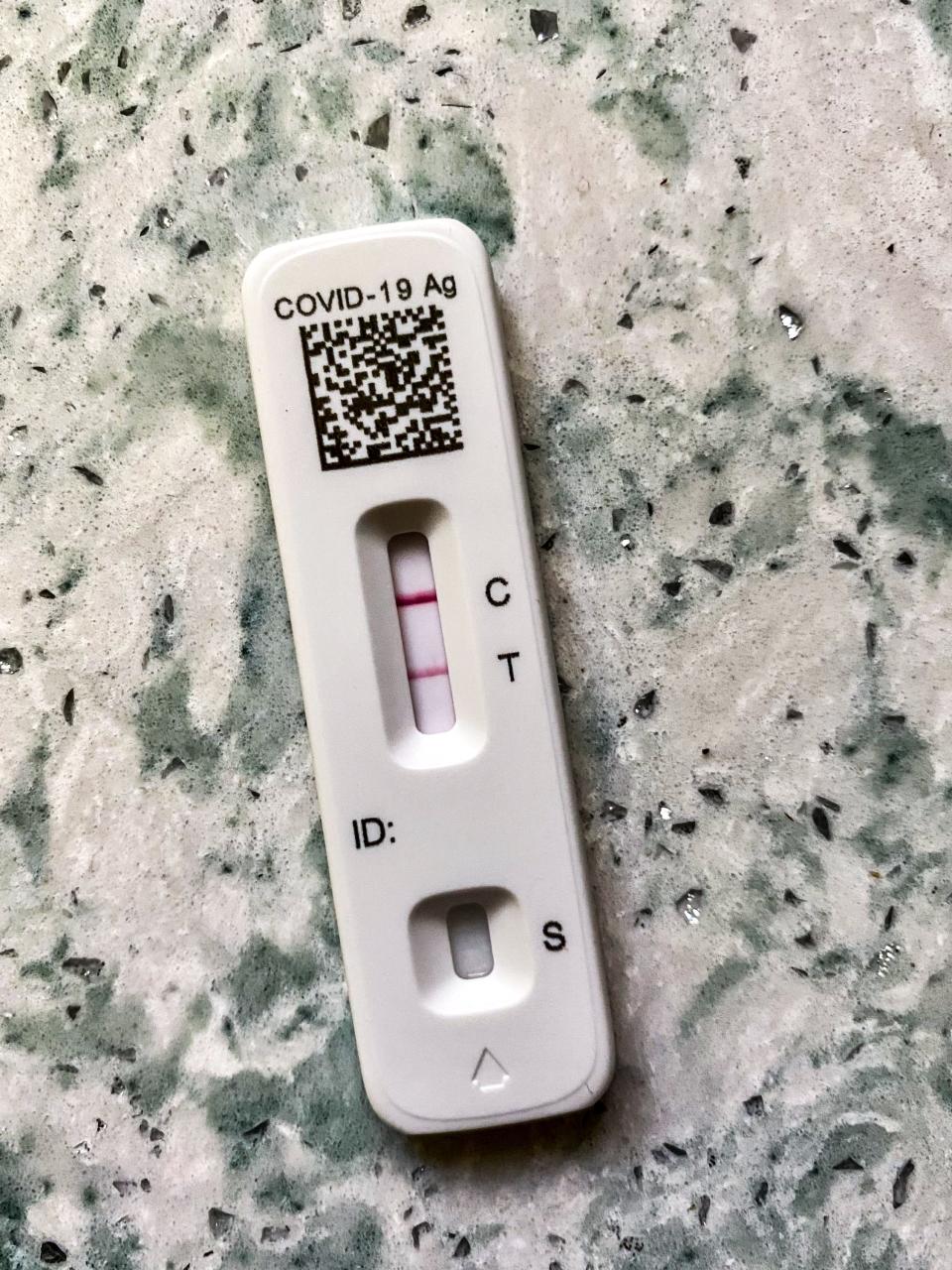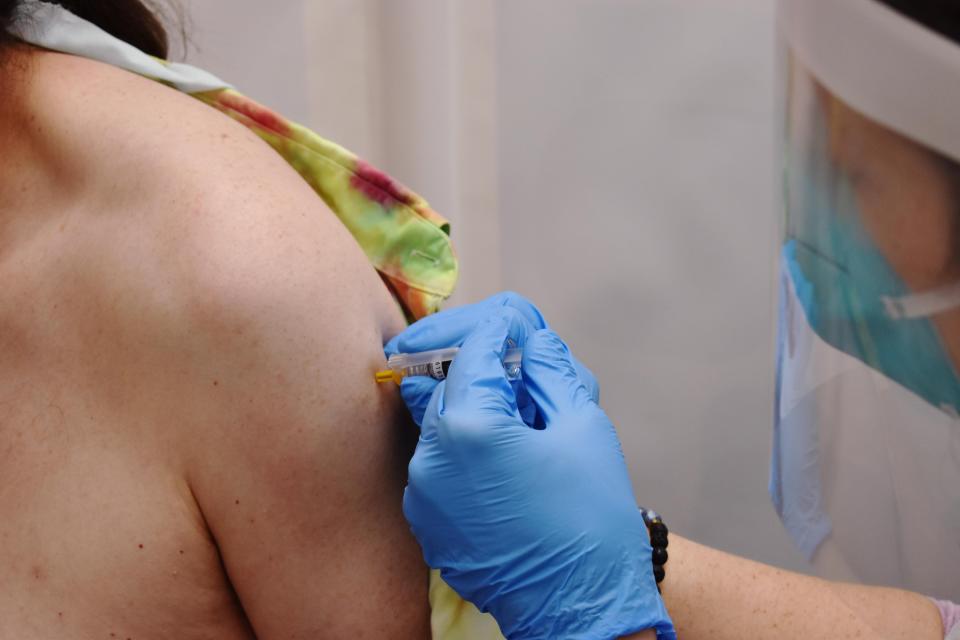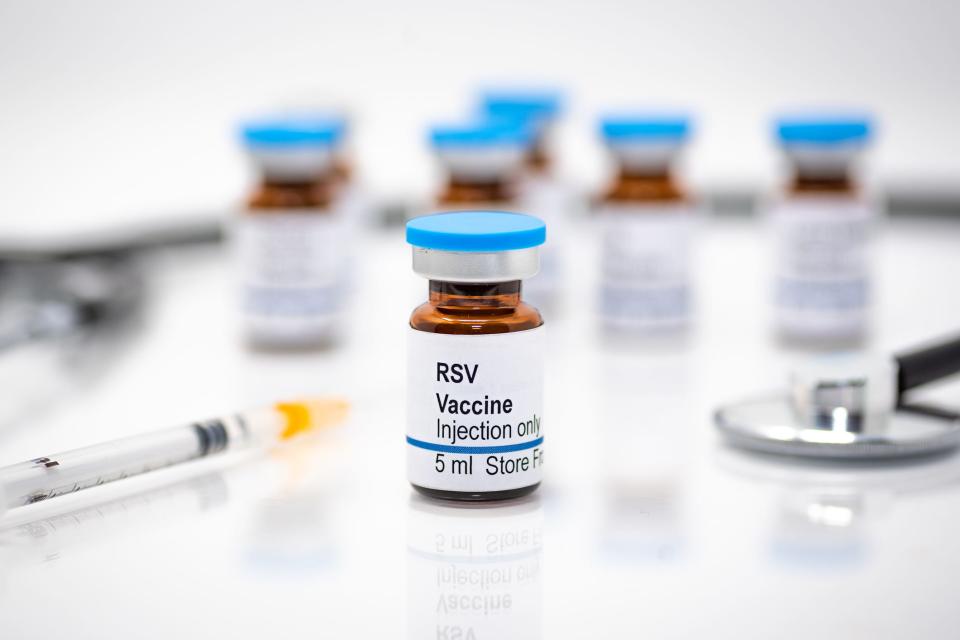Will COVID, flu spike in NY during the holidays? What to know, and how to stay healthy
- Oops!Something went wrong.Please try again later.
Waves of flu, COVID-19 and RSV infections have crashed over New York during the past three holiday seasons, leaving behind clues about what to expect this year — and tips for staying healthy.
From New Yorkers dropping precautions that curb infections to naïve immune systems linked to remote learning or low vaccination rates, reasons abound for prior respiratory illness spikes during the pandemic.
But this holiday season may mark the end of historic peaks of viral infections.
For starters, this year so far lacks some initial public health alarms that hit last fall, which saw the flu season spike early pre-Thanksgiving and reach record-shattering heights as holiday gatherings supercharged infection rates.
Still, the potential plot twists viruses have in store in coming months — and how New Yorkers behave — will be crucial to determining the severity of this respiratory virus season, health officials and experts said.
When to test for COVID before holidays?

The fact remains it is tough to know which illness you’re battling because many respiratory virus symptoms — such as sore throat, cough, fever, runny nose — overlap. But there are some subtle differences that offer clues, such as the rare display of sneezing in flu and COVID-19 cases.
At the same time, using tests to narrow down the suspects is also helpful in pursuing treatment and preventing viruses from spreading.
Health care: New York health insurance rates to jump double-digit percentage in 2024
A good starting point is the at-home COVID-19 test kit, which can help catch infection early. That step is key when pursuing antiviral pills, which work best if taken within five days of symptom onset. Some health providers may also test for flu if deciding to treat with an antiviral drug.
People who want to test for COVID-19 as a precaution in the days before holiday gatherings should also consider pursuing lab-based tests that are more capable of catching asymptomatic infections.
But lab-based tests are no longer covered by many health plans after the pandemic emergency expired, so learning about the latest federal recommendations, including extended expiration dates for at-home tests, is important. No cost testing is also still available for uninsured New Yorkers through the federal test-to-treat program.
Calculating COVID, flu, RSV risk
Despite some promising recent developments, the one constant in New York’s health story since 2020 has been that viruses remain extremely difficult to predict.
A new variant could emerge with limited warning, mirroring the historic omicron subvariant waves of the past two winters. Flu strains this year could prove especially virulent in the U.S. Low vaccination uptake may fuel a spike in severe illnesses.
Health care: Medical debt plagues 1 in 3 adults in this upstate city. How big of a problem is it in NY?
But that complex web of factors influencing respiratory viruses, in many ways, simply underscored the importance of personal risk calculus, said Dr. Aaron Glatt, an Infectious Diseases Society of America expert.
“It is very important to understand that you need to take your own individual health considerations into account in how aggressive you are at preventing illness,” he said.
For example, older New Yorkers or those with underlying health risks should take added precautions, such as indoor mask wearing or avoiding large crowds, to limit their risks of catching illness.
Younger otherwise healthy adults may decide to be less cautious, though their equation may shift when accounting for the risk of them spreading illness to vulnerable relatives at the holiday table.
When to get flu, COVID vaccine?

Once the respiratory virus season hits, it has become the prime time to get vaccinated against flu and COVID-19, health officials said.
The benefit is clear as the current flu vaccine reduced the risk for flu-related hospitalizations by 52% in the Southern Hemisphere, which has an earlier flu season, CDC reported recently. That same vaccine formulation is being used to target flu strains currently hitting New York and the Northern Hemisphere.
Boosting vaccination rates is key to limiting strains on hospitals, as New York proved last year when a slow early uptake of the flu vaccine contributed to later capacity crunches at hospitals.
Addiction: NY spending $192M in opioid settlement funds. How much will your county get?
At its peak, last flu season saw nearly 53,000 cases in one week. In contrast, the prior record season in 2019-20 peaked at about 17,000 cases in a week.
And by the end of last flu season, New York had a flu vaccination rate of about 52% among adults, which is near national averages but below ideal levels, federal data show.
Meanwhile, uptake this fall of the new COVID-19 vaccines has been lower than prior years, following early supply chain and insurance hiccups. Health officials have since urged all New Yorkers ages six months above to get vaccinated as recommended by federal guidance.
“The new COVID vaccine is better formulated to target the circulating variants, just like the flu shot is targeted each year,” state Health Commissioner Dr. James McDonald said in a statement.
“Everyone who can should get both vaccines,” he added.
The advice came as a late summer uptick in COVID-19 hospitalizations has leveled off in early fall, state data show. But similar pre-holiday lulls in prior seasons were followed by massive COVID-19 surges caused, in part, by mutations in the virus.
Who is eligible for RSV vaccine?

Federal health officials recommend adults ages 60 and older should have the option to receive a single dose of RSV vaccine, based on discussions between the patient and their health care provider, CDC says.
There are also recommendations regarding providing a vaccine that prevents severe respiratory syncytial virus, or RSV, in pregnant women and infants. But those guidelines were revised in late October for infants amid a drug shortage that has coincided with a steady rise in cases.
This article originally appeared on Rockland/Westchester Journal News: Will COVID, flu spike in NY during the holidays? What to know

